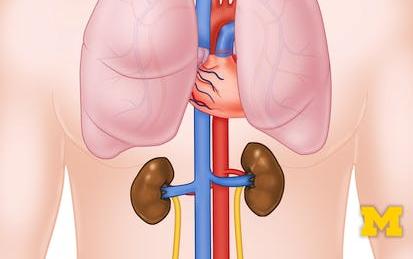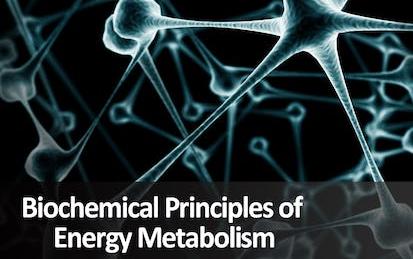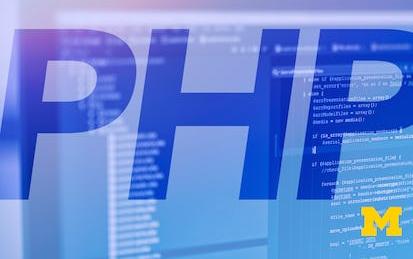

Our Courses

Algorithms for DNA Sequencing
We will learn computational methods -- algorithms and data structures -- for analyzing DNA sequencing data. We will learn a little about DNA, genomics, and how DNA sequencing is used. We will use Python to implement key algorithms and data structures and to analyze real genomes and DNA sequencing datasets.
-
Course by

-
 Self Paced
Self Paced
-
 12 hours
12 hours
-
 English
English

Discrete Optimization
Tired of solving Sudokus by hand? This class teaches you how to solve complex search problems with discrete optimization concepts and algorithms, including constraint programming, local search, and mixed-integer programming. Optimization technology is ubiquitous in our society. It schedules planes and their crews, coordinates the production of steel, and organizes the transportation of iron ore from the mines to the ports. Optimization clears the day-ahead and real-time markets to deliver electricity to millions of people.
-
Course by

-
 Self Paced
Self Paced
-
 65 hours
65 hours
-
 English
English

Think Outside the Inbox: Email Marketing
Think Outside the Inbox: Email Marketing is the fourth of seven courses in the Google Digital Marketing & E-commerce Certificate. This course will explore how to execute a successful email marketing campaign. Email marketing is one of the oldest and most proven digital marketing channels, and it is an essential component of an overall digital marketing strategy. Email is a primary channel for many businesses in reaching existing customers, encouraging interaction with the business, driving purchases, and building loyalty.
-
Course by

-
 Self Paced
Self Paced
-
 26 hours
26 hours
-
 English
English

Convolutional Neural Networks
In the fourth course of the Deep Learning Specialization, you will understand how computer vision has evolved and become familiar with its exciting applications such as autonomous driving, face recognition, reading radiology images, and more. By the end, you will be able to build a convolutional neural network, including recent variations such as residual networks; apply convolutional networks to visual detection and recognition tasks; and use neural style transfer to generate art and apply these algorithms to a variety of image, video, and other 2D or 3D data.
-
Course by

-
 Self Paced
Self Paced
-
 36 hours
36 hours
-
 English
English

Anatomy: Cardiovascular, Respiratory and Urinary Systems
In this anatomy course, part of the Anatomy Specialization, you will explore the interactive relationships of the cardiovascular, respiratory and urinary systems, and the roles they play in your body. This course is a primer for the cardiovascular, respiratory, and urinary systems in which students learn the pertinent details of the structures and functions through a combination of lectures, videos, labeling activities and quizzes.
-
Course by

-
 Self Paced
Self Paced
-
 19 hours
19 hours
-
 English
English

Information Extraction from Free Text Data in Health
In this MOOC, you will be introduced to advanced machine learning and natural language processing techniques to parse and extract information from unstructured text documents in healthcare, such as clinical notes, radiology reports, and discharge summaries. Whether you are an aspiring data scientist or an early or mid-career professional in data science or information technology in healthcare, it is critical that you keep up-to-date your skills in information extraction and analysis.
-
Course by

-
 Self Paced
Self Paced
-
 24 hours
24 hours
-
 English
English

Business English: Finance and Economics
Do you work in finance or interact with finance professionals? Is it necessary to speak, write or understand English in your career? Follow the authentic characters in this course as they work through common business situations in finance and economics. Learn from your successes and failure, and think critically about your own communication options. After taking this course, you will be able to read and create efficient e-mails, reports, and impactful presentations with words and phrases commonly used in finance and economics.
-
Course by

-
 Self Paced
Self Paced
-
 30 hours
30 hours
-
 English
English

Project Initiation: Starting a Successful Project
This is the second course in the Google Project Management Certificate program. This course will show you how to set a project up for success in the first phase of the project life cycle: the project initiation phase. In exploring the key components of this phase, you’ll learn how to define and manage project goals, deliverables, scope, and success criteria. You’ll discover how to use tools and templates like stakeholder analysis grids and project charters to help you set project expectations and communicate roles and responsibilities.
-
Course by

-
 Self Paced
Self Paced
-
 22 hours
22 hours
-
 English
English

Major Engineering Project Performance
Manage large projects by identifying their key characteristics, examining the key factors and risks that affect their performance and exploring methods to counter their impact on the successful delivery of projects. Looking into examples of best practice, you'll explore the relationship between projects, programmes and portfolios. You'll also discover the roles performed by the project manager, examine the difficulties associated with quantifying transaction costs in major project management and consider how different management approaches impact on these costs.
-
Course by

-
 Self Paced
Self Paced
-
 19 hours
19 hours
-
 English
English

Launching Your Music Career
Launching a career in music is an exhilarating and transformative journey that requires passion, dedication, and a strong commitment to artistic growth. This course is designed to equip musicians with the knowledge and skills to navigate the business side of their music career. This course covers a range of essential topics that will empower musicians to take control of their artistic journey and thrive in the industry. In this course, you will gain invaluable insights into effectively managing a successful gigging career.
-
Course by

-
 Self Paced
Self Paced
-
 8 hours
8 hours
-
 English
English

React Basics
React is a powerful JavaScript library that you can use to build user interfaces for web and mobile applications (apps).
-
Course by

-
 Self Paced
Self Paced
-
 27 hours
27 hours
-
 English
English

Biochemical Principles of Energy Metabolism
Everyone knows that energy is essential for sustaining life. How can you define energy in life? Have ever thought about ways of how carbohydrates like glucose from your diet can be used for extracting energy? A scientific field that focuses on energy production and flow though living cells and organisms is called bioenergetics. Energy metabolism covers various biochemical ways of energy transformation and regulatory mechanisms of over thousands chemical reactions. Without fine control of those metabolic processes, cells and organisms cannot maintain activities linked to life.
-
Course by

-
 Self Paced
Self Paced
-
 11 hours
11 hours
-
 English
English

Building Web Applications in PHP
In this course, you'll explore the basic structure of a web application, and how a web browser interacts with a web server. You'll be introduced to the request/response cycle, including GET/POST/Redirect. You'll also gain an introductory understanding of Hypertext Markup Language (HTML), as well as the basic syntax and data structures of the PHP language, variables, logic, iteration, arrays, error handling, and superglobal variables, among other elements. An introduction to Cascading Style Sheets (CSS) will allow you to style markup for webpages.
-
Course by

-
 Self Paced
Self Paced
-
 31 hours
31 hours
-
 English
English

3D Model Creation with Autodesk Fusion 360
Design is the first phase in the digital manufacturing process. In this course, through a series of lectures and hands-on lessons, we’ll examine a designer’s approach to the design and manufacturing process—from concept to 3D model. We’ll start by applying design thinking to understand user needs, and then we’ll explore design criteria as we dive deeper into Autodesk® Fusion 360™ sketching, modeling, rendering, and documentation features.\n\nLooking for Autodesk Fusion 360 certification prep courses?
-
Course by

-
 Self Paced
Self Paced
-
 15 hours
15 hours
-
 English
English
Capstone Assignment - CDSS 5
This course is a capstone assignment requiring you to apply the knowledge and skill you have learnt throughout the specialization. In this course you will choose one of the areas and complete the assignment to pass.
-
Course by

-
 Self Paced
Self Paced
-
 3 hours
3 hours
-
 English
English

The Unix Workbench
Unix forms a foundation that is often very helpful for accomplishing other goals you might have for you and your computer, whether that goal is running a business, writing a book, curing disease, or creating the next great app. The means to these goals are sometimes carried out by writing software. Software can’t be mined out of the ground, nor can software seeds be planted in spring to harvest by autumn. Software isn’t produced in factories on an assembly line. Software is a hand-made, often bespoke good. If a software developer is an artisan, then Unix is their workbench.
-
Course by

-
 Self Paced
Self Paced
-
 19 hours
19 hours
-
 English
English

Project Management: The Basics for Success
This course combines the essential elements of Project Management and Team Leadership into one course. Through class engagement and reflection, you will acquire further understanding of the responsibilities of leadership and become better prepared to apply this knowledge to the project environment. Upon completing this course, you will be able to: 1. Learn about the role of high performance teams and leadership in project management 2. Learn about the tools and techniques for developing and strengthening high performance teams and team members 3.
-
Course by

-
 Self Paced
Self Paced
-
 8 hours
8 hours
-
 English
English

The R Programming Environment
This course provides a rigorous introduction to the R programming language, with a particular focus on using R for software development in a data science setting. Whether you are part of a data science team or working individually within a community of developers, this course will give you the knowledge of R needed to make useful contributions in those settings. As the first course in the Specialization, the course provides the essential foundation of R needed for the following courses.
-
Course by

-
 27 hours
27 hours
-
 English
English

Identifying Social Entrepreneurship Opportunities
This Course will clarify the definition and meaning of Social Entrepreneurship and will focus on the need to learn about the source and root of a social problem. You will be introduced to different perspectives about Social Entrepreneurship and you will learn about complementary and opportunistic assets which will help you to detect an opportunity and develop an idea of how to create a business for social change.
-
Course by

-
 Self Paced
Self Paced
-
 25 hours
25 hours
-
 English
English
Think Again I: How to Understand Arguments
In this course, you will learn what an argument is. The definition of argument will enable you to identify when speakers are giving arguments and when they are not. Next, you will learn how to break an argument into its essential parts, how to put them in order to reveal their connections, and how to fill in gaps in an argument by adding suppressed premises.
-
Course by

-
 Self Paced
Self Paced
-
 25 hours
25 hours
-
 English
English

Process Data from Dirty to Clean
This is the fourth course in the Google Data Analytics Certificate. In this course, you’ll continue to build your understanding of data analytics and the concepts and tools that data analysts use in their work. You’ll learn how to check and clean your data using spreadsheets and SQL, as well as how to verify and report your data cleaning results.
-
Course by

-
 Self Paced
Self Paced
-
 24 hours
24 hours
-
 English
English

The Economics of AI
The course introduces you to cutting-edge research in the economics of AI and the implications for economic growth and labor markets. We start by analyzing the nature of intelligence and information theory. Then we connect our analysis to modeling production and technological change in economics, and how these processes are affected by AI. Next we turn to how technological change drives aggregate economic growth, covering a range of scenarios including a potential growth singularity.
-
Course by

-
 Self Paced
Self Paced
-
 28 hours
28 hours
-
 English
English

How to Create a Good Business
Prioritizing the wellbeing of workers is not just a good - or ethical - thing to do, but because it makes business sense. A happier, healthier workforce is a more productive workforce.
-
Course by

-
 Self Paced
Self Paced
-
 23 hours
23 hours
-
 English
English

Qualitative Research Methods
In this course you will be introduced to the basic ideas behind the qualitative research in social science. You will learn about data collection, description, analysis and interpretation in qualitative research. Qualitative research often involves an iterative process.
-
Course by

-
 Self Paced
Self Paced
-
 24 hours
24 hours
-
 English
English

Conversations That Inspire: Coaching Learning, Leadership and Change
Coaching can inspire and motivate people to learn, change, and be effective leaders, among other roles in life. Although most attempts are “coaching for compliance” (coaching someone to your wishes or expectations), decades of behavioral and neuroscience research show us that “coaching with compassion” (coaching someone to their dreams and desires) is more effective.
-
Course by

-
 Self Paced
Self Paced
-
 14 hours
14 hours
-
 English
English



